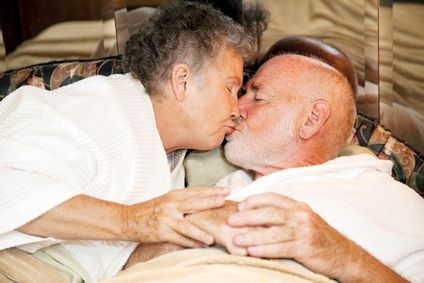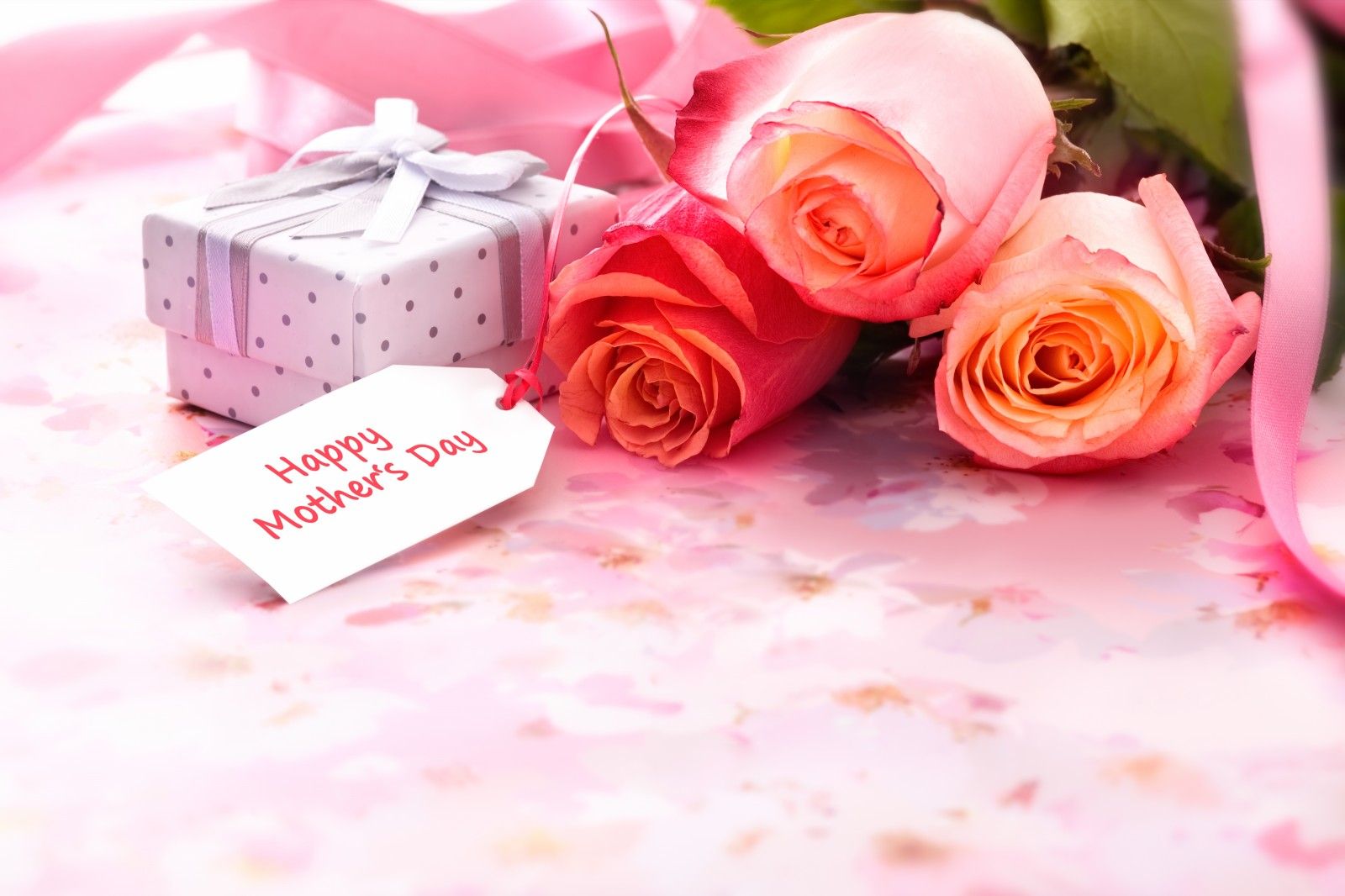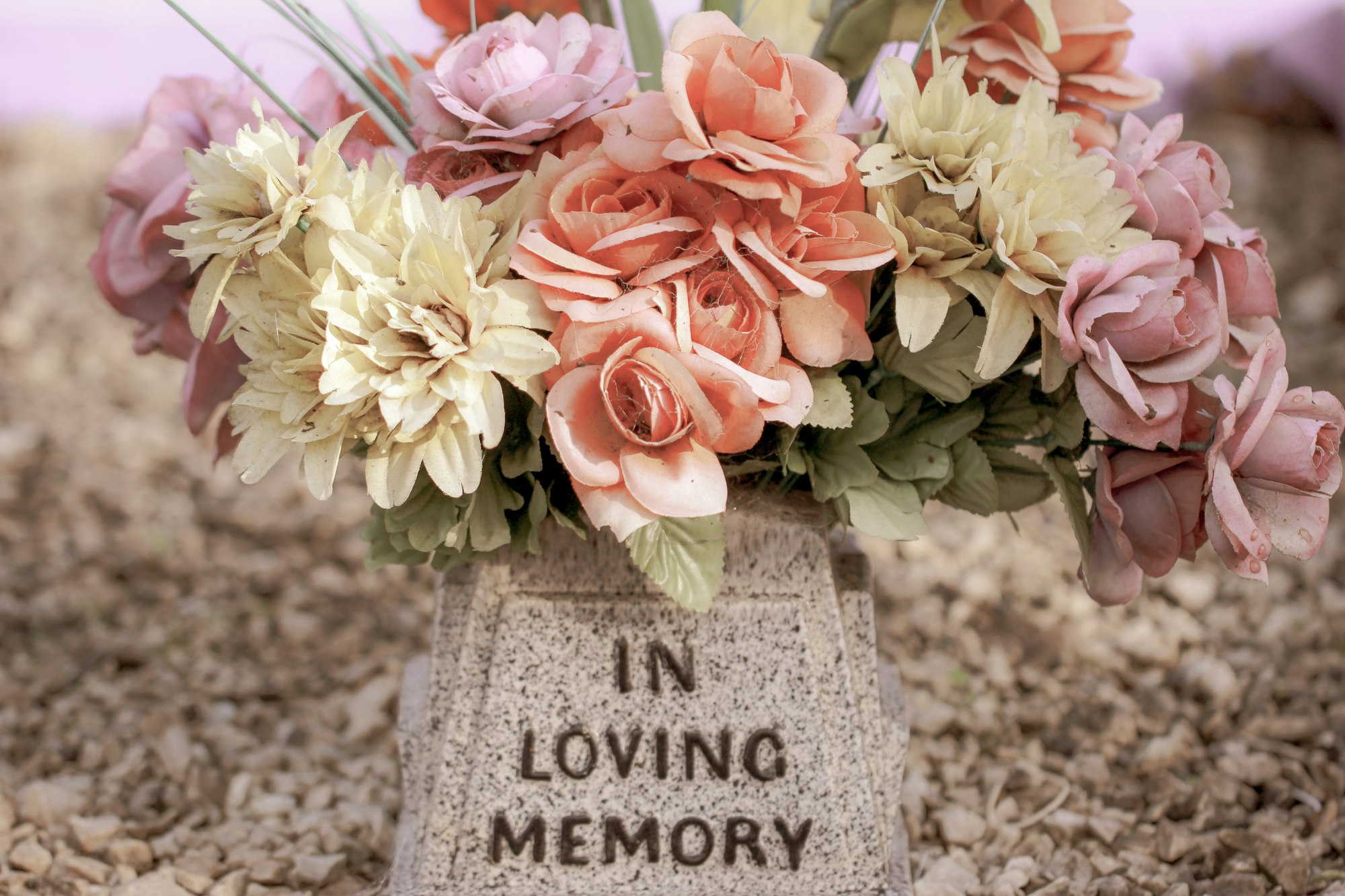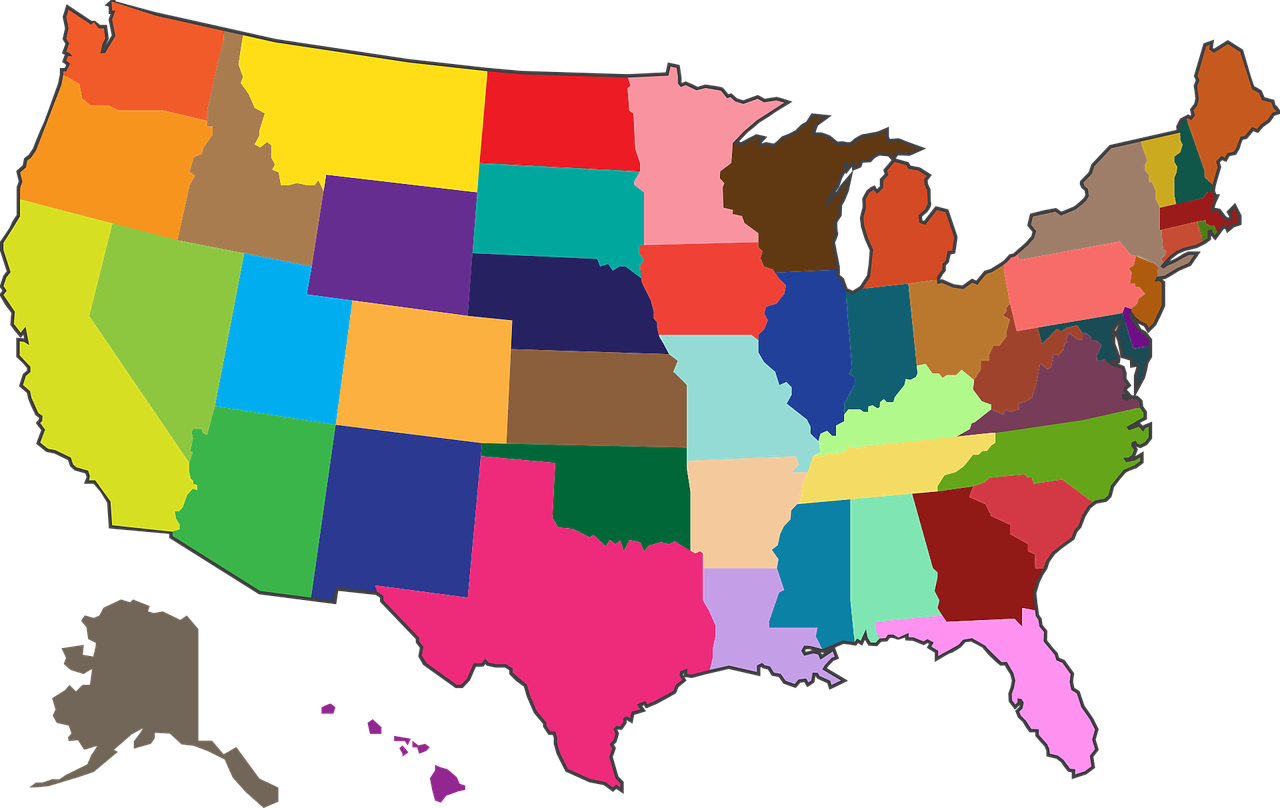General planning. Funeral Burial Alternatives with Alycia Martel - Episode 21
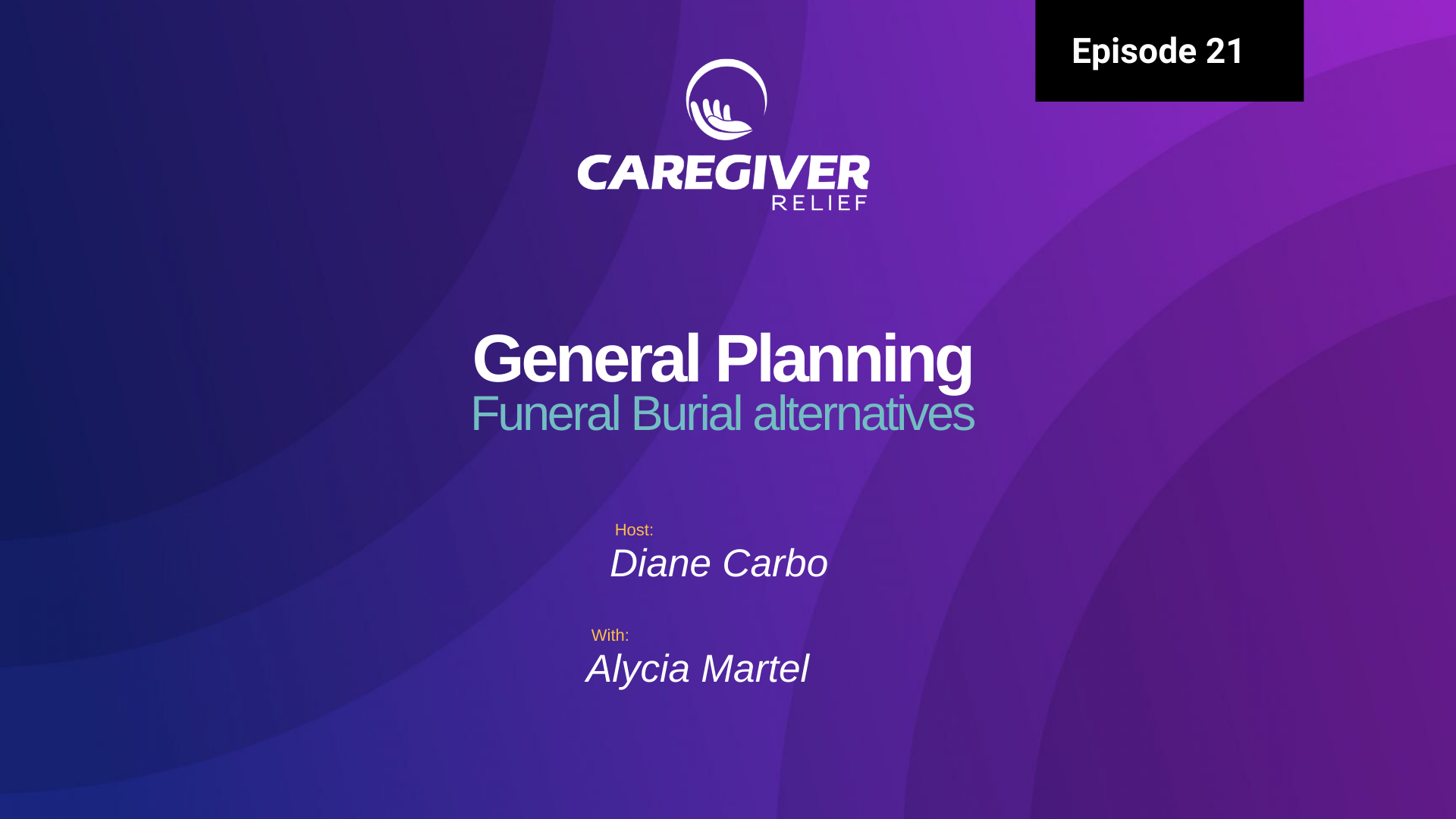
Rituals surrounding death, grief, and burial are deeply ingrained in every culture, shaping how societies navigate the transition from life to death. However, a shift is taking place as more individuals opt for non-traditional funeral and burial practices. In this exploration, we delve into the world of alternative funeral and burial options, seeking insights from experts who are pioneering this change. Join us as we uncover innovative ways to honor the departed and celebrate lives through unique, eco-conscious, and personalized approaches.
Diane Carbo: Hi, this is Diane Carbo and I’m with caregiver relief. Today I have Alycia Martel with me. She’s our end of life specialist, def doula, caregiver, coach, and podcast host.
Diane Carbo: Alycia you have an amazing topic. That goes in line with what I’ve been talking about with my other. Care specialists, pat we’re making end of life plans. And just recently we did one on how culture, religion, and even gender plays a part in your end of life planning and your choices, but through your course that you’re taking, you are learning about alternative funerals. So I thought this was, I think that’s a great topic.
Alycia Martel: I thought so too. It was just a fascinating, and I got very excited when I read about a couple of these alternative funerals, alternative burials, we’re all very used to the traditional.
Alycia Martel: Funerals where you go and you pay your respects to your loved one in the funeral home. And you go and you place this coffin in the ground, or a cremation where our loved ones are placed, in an urn. And I didn’t even know that these options existed. Two that I want to talk about.
Alycia Martel: There’s the home funeral where you give your loved one, the entire funeral process awake in a. Traditional funeral religious service at home before you go to have your burial sites or a crematory center. And then there’s my personal favors that got me very excited was a green burial where you’re literally turning to the earth.
Diane Carbo: Yes. That is really a a really a big growing interest because people are the growing rise in environmental awareness is there and people are even thinking about it after they pass.
Alycia Martel: Traditionally when your loved one passes, you go to a funeral home and you pick out a casket, which can be very simple. It can be a plain pine box of plain old box, but more often than not, I hate to say it, but the funeral directors are in the room.
Alycia Martel: To run a business and make some money. And they’re going to try to persuade you into some more pricier. I’ll be at beautiful caskets for your loved ones. They are pricier let’s say you get a marble casket for your loved one or the boxes. Heavily lacquered with different types of paints and chemicals and finishes.
Alycia Martel: They’re going to leach into the ground and your body is filled with embalming fluid. We all heard of formaldehyde and I don’t even know what else is contained in these chemicals, in the involvement process. But all that’s going to leach out and reach out into the ground and we do the burial several times a day across the entire nation and entire world. That’s a lot of stuff leaching out into the ground over the years, our bodies will decay naturally, but the rest of it is not very natural.
Diane Carbo: Yes. And that’s why there’s been a big growth in the cremation process . It’s actually revolutionized the death care industry because it’s just almost, we’re almost 55% nationally that people are actually wanting to be cremated because of the process that is happening with the bodies and the environment and the concern for the environment. Plus, I think we’re running out of space in some areas, and there are parts of the world where people don’t have the ability to be buried in the ground six feet under.
Alycia Martel: You’re right. Some places they’re running out of it. There’s different areas of the country. And let’s say the world where the terrain is different. And sometimes it’s just too darn Rocky. You can’t get through or it’s frozen. And you got lower water tables where you have to have the model in terms of higher above ground, I’m thinking down in Louisiana and places like that. So you go to cremation, which is a more environmentally and fiscally responsible, the form of taking care of your loved ones after death. A lot of people choose to have their ashes scattered, which I didn’t know either that there’s laws about sounds.
Alycia Martel: Within so many feet of the shoreline, I always was leaning towards scatter my ashes into the ocean too, but I didn’t know you had to be out so far which is fine. Go ahead. Charter a boat for the day, have a great day, that’s also a very great way for families to honor their loved ones, make a day out of something. Follow the laws in your state, every state is different, very different that I’m learning. Even in this tradition.
Diane Carbo: Yes. I think the more things change, the more they stay the same. And we have gone from having home burials to services needed in a funeral home. By professionals. And it used to be that the norm was a family care for their own bot, only deceased.
Diane Carbo: They prepared the bodies, they used the simple wooden coffin, and then they had it in the slumber parlor or their living room . Then they would take the body to the cemetery in a lot of places, they just buried down on in a family plot somewhere that they had set aside if they had that land available.
Alycia Martel: That’s another tradition that’s actually making a comeback home. Funerals are still legal in all the states. There are laws in every state though that you must follow. You need to still call and report the loss unless it was a terminal illness. And you’re working that way with an organization such as hospice.
Alycia Martel: I have the experience with my. Late. Mother-in-law where we had hospice in home and I was her caregiver. So when the nurse made it over, after she had passed away, I got to be involved with, the preparing of the body after she passed. And she did it with such grace and dignity and that part was done at home.
Alycia Martel: That had been her voice, she had gotten to plan that and a great, not a great number of her family. Okay. All of her family was at the house, but it was just myself and the hospice nurse that prepare her body. We had a small viewing and then the funeral home came.
Diane Carbo: I’m going to interject here that I have done that many times prepared the body for death, and I’ve always included the family member in that process. I also want to interject here that people don’t understand that if you have a death at home and they’re not on hospice, whether it’s in your home or in assisted living, there is a legal.
Diane Carbo: Investigation done to make sure that person was not harmed in some way. And that death was was intentional and not a part of a natural dying process. So that’s why when people want to die at home, the hospice services are necessary. And that’s one of the reasons why in assisted living, which people don’t understand is a social model, not a medical model.
Diane Carbo: That it’s very important that they have a person on hospice because. It means an investigation of the family and others. My experience is I have a family member who her and her husband had 10 kids together, had a long happy life together, and they were enjoying the retirement and they had An RV.
Diane Carbo: They were done in Texas where they went every year to stay with some of their kids that were down there. Cause they were from Pittsburgh . Ruth woke up one morning and Al was dead in bed with her. It was sudden it was a heart attack. God bless him. He worked hard all his life. He was a letter carrier.
Diane Carbo: But they treated her with such. Disdain and suspicion and it caused her so much pain and agony. When at a time was, she had just lost her best friend, her life partner. It was very hard. So I think when people think of home burials, they have to understand that yes, home burials are beautiful, but in order to avoid the unnecessary investigations and stuff that it’s important that a family member be on hospice.
Alycia Martel: Obviously there’s things I’ll throw up a monkey wrench into that, I’m very proud. That was awful.
Diane Carbo: I felt bad for her and it’s a terrible story,. I want people to know that I’ve actually done home death care. as a hospice nurse, I have been there and done that, but I want to share an experience of a home funeral.
Diane Carbo: I was seven years old and Joey Bo was one of my classmates and he lived around the corner from where I lived. Joey had leukemia. He died of leukemia when we were in first grade. And I can remember going over to his house because his parents were old school. They were an old Italian family and they had the casket in the home and visitation in the homes and they even had the service in the home.
Diane Carbo: Before they buried him that had a dramatic effect on me as a young person, because I was seeing somebody my own age. Dead, but I didn’t find it disturbing. I, because I’m from, if they got rich family, there were lots of funerals as I was growing up. But I want people to understand that when they think of having somebody at home and having to take care of them, that dead bodies are not dangerous, unless the person has highly contagious, terrible disease. They present no threat to you whatsoever. People also worry that, taking care of a body when you’re doing it, it’s got to be something illegal about it. They can’t do that. And that’s not true either. Again, look at the laws in your state and country, you may.
Diane Carbo: Assistance from your local mortician in regard to after you prepare the body, but it’s an acceptable practice in most states. And it was something that was done for years and years before we changed into going to the funeral service. One of the things you talk about is preparing the body after death.
Diane Carbo: That’s, a very humbling experience. And every time I’ve been in the situation where I have had a person pal. I include the family members in the bathing and the preparing of the body. It’s a spiritual experience in some ways as well. Yeah. You’re bathing the person and it can be done in a dignified manner.
Diane Carbo: I know there are daughters out there that feel like, oh my God, I can’t do that to my father or sons that don’t want to bathe their mother at the end because it’s such a personal or an intimate thing to do, but it can be done in a dignified manner. The person that you are, that is assisting you, is able to cover parts of the body that you feel uncomfortable washing. , it’s a nice process and it doesn’t have to be uncomfortable. It can be very uplifting and spiritual.
Alycia Martel: That’s one of the things about death is it’s supposed to be a spiritual experience. It’s because it is, and most spiritual and religious practices and cultures, a lot of cultures, it is still a spiritual experience where crossing that great divide or crossing the veil into the big unknown. It’s only right to treat the body that housed our soul with the dignity and the respect that we gave it in life for just one more time. That’s something that dates back, looking at what the Egyptians did for their dad, they gave them gold and painted their faces.
Alycia Martel: With lapis, lazuli and Ruby. That was mainly royalty, but still even the peasants, they gave them trinkets and stones for six to carry them across. This is a tradition that goes back since the Dawn of time is preparing our loved ones off to the other side. You are responsible for preserving the body.
Alycia Martel: With gel packs, and there are ordinances. I know Connecticut, you have to use a funeral director. If you’re having a home funeral, there are some other states Indiana, Louisiana off the top of my head. Then I know we definitely do need a funeral director. It saves a lot of money. A lot of people are strapped and that can be one saving grace that you don’t worry about.
Diane Carbo: I will tell you that the desk industry takes advantage of people in their time of grief. They play on their emotions and guilt is a big emotion that people have because they may not have been there when the family member died or they think that. I didn’t do enough or whatever their driving forces.
Diane Carbo: They think that having the best headstone, a designer headstone, or having the best coffin is going to make up for that. And that’s not what death and dying is about. That’s why advanced planning is so important because family members don’t have the financial ability to have the send off that you may want.
Diane Carbo: It’s just easier. And it takes so much stress away. If you do your research and do advance planning. To put the things in place. It’s also important to have those conversations about what you want.
Diane Carbo: A green burial. I know very little about the green burial, but I’ve seen so many different options right now about it. I’ve been looking at it and it’s just, it’s a really nice.
Alycia Martel: It is a really nice process, are gonna spend a little bit of money on it in some regards, but you’re going to save money in some regards to, there’s dedicated cemeteries in every state at the moment, one or two, there’s not many, but there’s. Form there’s hybrid cemeteries, where you have the traditional cemetery and you have a portion blocked off or green burials, and you can do it in so many different ways.
Alycia Martel: One popular way is having the ashes placed in a biodegradable urn that will in turn. As it biodegrades grow into a type of tree, I believe you can choose the type of tree that’s, envisioned as to your area.
Diane Carbo: I loved that. Absolutely loved that.
Alycia Martel: I think that’s just so amazing, other ways you can have your body encased in a simple shroud and buried in some areas is wild patches of land where there’s simple markers flat. They don’t do headstones. You won’t find a green burial site that does traditional headstones or monuments, but they do flush markers to the ground that will say your name, give your simple info and. Your earn you’ll be just placed in the ground.
Alycia Martel: Now if you do any type of involving there are places that do organic involvement, similar to what our ancestors did. No chemicals, just, herbs and oils and spices because that’s what our ancestors used. It’s obviously done a little bit quicker. Then other, method, but and you can have a service right there.
Alycia Martel: You can bring in your own officiant and have people say things and you can always go back and visit your loved one underneath that, third Willow tree or wherever it is that they, decide to enter. The deceased. There’s nothing about the human body that will endanger the water supply or endanger the animals, and know the animals don’t go digging because you are so far on the ground.
Alycia Martel: They can’t sense that that’s a common question I’ll ask and I know in Connecticut, we only have one at the moment and it’s a hybrid. There’s websites and every state. In Connecticut. Ours is called the Connecticut green burial ground foundation.
Alycia Martel: That is a good way to look up information. You can Google green burials or green funerals, and that will direct you to cemeteries and organizations that will tell you where, what participates.
Diane Carbo: I think that environmentally friendly options seem limitless now. I think that when you’re considering this, I love the no toxic chemicals. I love that they’re considering biodegradable, burial materials, all shrouds made of by a great degradable substances like bamboo and Wicker or hemp even are something that are, we are using instead of metal and concrete.
Diane Carbo: And wood is another thing that they’re using that is substantially harvested is also an a good option in that they’re avoiding concrete faults, which is great . One of the things I read about natural grave markers is cemetery. The green cemeteries are actually providing a GPS location so that you can find your loved one’s grave easily.
Diane Carbo: I love that. I can’t grow anything . I don’t have a green phone, but to think that a grave marker could be a tree or a shrub or perennial flowers or rocks or whatever. I just love that because I can give back to the environment in a way that I couldn’t do what I was living. And I think there’s some gardeners. They would love that.
Alycia Martel: Exactly. I think that too, and it’s funny that you say that because I’d say I have the greens on the desk. I I can keep people in animals, nothing green. You can remember where they were, and I would much rather go and sit. In a forest type of environment and spend time with nature and soak up the beauty, yes.
Diane Carbo: I agree. And it’s less expensive and it’s just a more peaceful way to go. You did bring up sea burial., Pat the other end of life care specialists.
Diane Carbo: I have her husband, his wish was to be put in the Irish sea. So she had her sister who was going to Ireland take his ashes. There are many people that are divers or have spent hours under water, by, Marine biologists and stuff.
Diane Carbo: They think that is an alternative to the standard funeral. And it could be simply a means of cremation and scattering, which you have to be at least three nautical miles from the land. And the water has to be at least 600 feet deep as what I’ve learned, but you can also have a full body burial at sea.
Diane Carbo: Again, you have to comply with environmental protection agency regulations. So you need to do your research and you need to do it ahead of time so that the family can know what your wishes are. Planning ahead of time makes it easier for people to do the process. Naturally or a family directed funeral is what I like to call it.
Alycia Martel: That’s, part of the advanced directive, yes.
Diane Carbo: That’s why it’s so important for people to talk about it. And they really need to be aware. I want to bring up another point that some people are doing and is people are having your ashes made into Memorial diamond. For those of you that are out there that want to do something different. I actually had some of Jeff’s ashes. My son, Jeff are put into a little heart necklace that was filled with his ashes. . I had one client who was dying of cancer.
Diane Carbo: It was her third bout of cancer. She decided that she was planning her funeral. We were sitting around talking about . She wanted the designer a headstone and she wanted, picked out her clothes and everything and the makeup and even the wig she wanted to have on her when she was laid out.
Diane Carbo: When I read about the diamonds , I know that this woman would have loved to have made herself, create a diamond and have them wear that around. They’re next in honor of her. People can actually have the ashes of the deceased made into a diamond as a keepsake of your loved one.
Diane Carbo: And again, it’s what you feel is important to you and your family. I’ve also read that you can have your turned into a 3d ornament.
Diane Carbo: That’s another thing, it’s a whole new range of possibilities where you become a piece of glass or whatever to memorialize yourself.. Another thing that I’ve learned is you could become part of a coral reef. Yeah. Bring that up. Let’s talk about that.
Alycia Martel: I think they make these specific types of urns and they’re made out of coral, , they take them out to a coral reef and they’re implanted in such a way that the coral grows around it and accepts it. And you add onto the coral reef that we, as humans have been destroying and it’s the keep going.
Alycia Martel: The coral is so necessary for the ocean biodiversity, for the fish and the wildlife and even other plants to thrive.
Diane Carbo: I’m attached to the ocean and I’m always walking on the beach. And I just think that’s such a beautiful way to give back to the environment as well. For those of us that are care about the environment the coral reef burial sounded very fascinating to me.
Diane Carbo: I really liked that. I really liked that one a lot. I also read where people are taking your ashes and having it turned into a beautiful piece of art. I don’t know how you mix pate with ashes. I don’t know how it happens, but I know that are processes that can happen that contained your ashes into a beautiful piece of art for you if you wanted it.
Alycia Martel: Yup. And that there are artists that will do that. I think that is an amazing use of their talent and skill. What a service to offer people positive.
Diane Carbo: Priceless, and sentimental value to somebody who’s lost their loved one. I just think that’s a beautiful way to remember people is having an artist, take your ashes and create it into whether it’s a portrait or a sculpture or whatever. I just think that’s a beautiful way to have something, a memory of a lost, loved one.
Alycia Martel: It is, there’s so many different ways that we can now take control of our own deaths, and how our bodies will live in eternity. I feel as though it can really help take a lot of the fear out of the dying process.
Diane Carbo: I agree. And I’m going to tell you that some people want to go out with a bang and see some of my friends doing this. They have been very imaginative and people are actually having their ashes added to fireworks. I thought this was such a fun thing. What a colorful and quick goodbye, you have a celebration where your life is celebrated by fireworks.
Diane Carbo: So for some people I can see them going out with a bang and I get a giggle out of that one. I really do.
Alycia Martel: That is a ceremony that I would love to attend. And I got to say that I’m one of those people who would definitely make it interesting.
Alycia Martel: You know what I agree. I would love to go to a service like that. I really would. I think that it would take on the death and dying. Process and take it to a different level where we are celebrating a person’s life up until the very end, because that’s what we’re here for.
Diane Carbo: Yes. I have one other way that I have learned about doing research in this the music lovers out there. There are services that allow your ashes to be compressed into a vinyl record of your favorite tune.
Alycia Martel: Now that I have heard of, and as a musician that intrigued me.
Diane Carbo: I just got the biggest Chuck, a lot of this because there’s two ways you could look at it. I could see somebody a family member wanting to drive their family members saying, I want this song, I want to be made into a record and this is the song I want it to be. And it could be something that they really love, or it could be the most irritating too, that you’ve ever heard to continue to bother their family members after they’ve crossed over to the other life.
Diane Carbo: I think of I think her name was Florence Jenkins. The woman who had mercury poisoning and was very wealthy and she thought she could sing . New Yorkers fed into her delusions of being a good singer and I think of her. She would have loved that she would have loved to been at a vinyl record and the songs that she sang were poor, but she would have liked to have left them to everybody.
Alycia Martel: That’s pretty neat too.
Diane Carbo: Yeah, I just, I’m just being silly. I will tell you, there is a new alternative out there to a standard funeral is a life celebration. I really found this when my son Jeff died, we had them announced that we didn’t want people to grieve, but to celebrate his life. But this is even takes a more personalized approach. Commemorating someone because it’s a life celebration that can be done, like for somebody who like your dad who has dementia and he’s a jokester having a life celebration before he passes. You have people say goodbye or whatever when he’s still alert and enjoying life and able to see people because people always have regret. They wished they had spent more time or whatever, it’s fun to have one now, before they pass. Some people are starting to do that.
Diane Carbo: Or the people that have are passing, they want to have a party with a special theme. It may be, Doug, the butterflies being released and it’s not conducted in a huge funeral home., there really are life celebration event planners out there, and there’s similar to wedding planners I can see people having fun with this as well, doing, I could see the fireworks and the life celebration thing at the same time.
Alycia Martel: Yeah. Yeah.
Diane Carbo: So I think that baby boomers are aging. We are. Living longer. We are people that enjoyed life. We volunteered more than any other group, and we want things done our way and we’re going to make , burial alternatives are going to be very big and they’re going to change the way we view death and dying. I think that’s In many ways.
Alycia Martel: I hope so too, because we need, we need to start taking the veil of mystery off of death and dying. We need to start having the conversation. We need to start talking about it because it’s the next step nobody’s getting out of it. We all need to discuss this and make it normal, make it part of the conversation.
Diane Carbo: Absolutely. I think that if you approach it with the right way it can not only be a meaningful conversation that it helps people go through the grief process in a different way as well. It helps you accept death more. Yes. As a person who lost a mother at 18 and a son when he was 35 to suicide.
Diane Carbo: I know grief, and I know how unhealthy my family was about talking about death and dying and how it has negatively impacted my entire life. As far as the, my grief process. I think that if we can actually look forward to making things easier on our families, by preparing for end of life, doing the funeral planning.
Diane Carbo: And actually taking the steps to talk about what we want, how we want it done and how we feel about it. I think opening those conversations and having those conversations makes acceptance of death easier in some ways.
Alycia Martel: And it’s important to note too, that you don’t have to be ill terminally ill or even ill at all to make these earrings. You can be a healthy person and just wants to get this out of the way for your family, for your own peace of mind.
Diane Carbo: You know what? Yes, I’m a hundred percent in agreement with that. In fact I think anybody that has over the age of 18 should have an advanced directive in place, or at least the power of attorney in place.
Diane Carbo: And those of us that have any kind of illness , Should be having a conversation in our culture. Now we’re in a culture where here you are, you’re a caregiver. You have a 14 year old daughter, you’re home, you’re disabled. And you’re a full time caregiver to a father with dementia. And you’ve been caregiving for over 14 years.
Diane Carbo: And because your dad has a slow type of dementia, you are going to be doing this for a long time. In these intergenerational family situations, we should be having the conversations about what we are doing with the death and dying process. What does your dad want? And your daughter should be there to be part of that, because it’s going to have an impact on her life when she loses her grandfather.
Alycia Martel: We had. We’ve recently had a discussion with her about that. This hasn’t been easy for her watching her Papa decline, the slow decline, but still a decline. And she’s also unfortunately had a childhood like mine with a lot of death in the family.
Alycia Martel: I was raised in a, I wanna say a culture of death, but I feel as though I have a. Different outlook on stuff. We make decisions that we did to shelter her a little bit from, to protect her a little bit more than I was.
Alycia Martel: That had his break with us. We’re going to have to work that out with her. We’re going to have to reteach her, how to deal with death when Papa’s time comes, but I’m confident that we’ll be able to, because it’s going to her and it’s going to be sad. And we’re just going to have to work that out.
Alycia Martel: She suffered some fairly significant losses in her 14 short years, just like I did, but my family. We just did things different and her family just does things in a different way as well. Not that either way is right or wrong. It’s just different cultures because literally she was raised in a different culture and it’s just how it is.
Alycia Martel: She knows about Papa’s illness. She knows about all timers and she’s been taught how to interact with him and how to help care for him, which has been taught her invaluable compassion. And I think that’s a great thing. I’ve come out of it because caregiving and children is a whole nother because of a cup of coffee there.
Diane Carbo: Yes. And it’s a topic for another day. Absolutely. And I think that’s a topic that needs to be addressed because we are a culture where we are dealing with interject generational. Family families living together. And I think that those families have to have those conversations and we can’t ignore it.
Diane Carbo: I come from a very large Irish family and my mom was young when she died. I was the oldest of four kids and I was just 18. Had lots of cousins and aunts and uncles. So I have had loss in my life and grandparents. When we’re at the funeral home and the kids are running around , he found that very offensive. It never occurred to me because it’s just like a natural part of life is death, because I grew up with so much of it, as well.
Diane Carbo: My dad didn’t want us to have conversations about my mom being ill and we weren’t allowed to talk about death or say the C word. And then after she died, we weren’t allowed to talk about my mom because he had another woman in his life and that brought a whole bunch of other issues.
Diane Carbo: But the bottom line is we have to have those conversations. And even if it’s just dealing with the death of a pet. I know that sounds silly, but I have people that have their pets put to sleep when their kids our way, because I guess they think that when they come back, they’re not going to know this they’re gone.
Diane Carbo: I don’t know, but they don’t go through that or discuss, have that discussion with them. And we can’t protect our kids from pain. We can’t protect our kids from hurt or grief, and it’s better to be open and discuss how they’re feeling than it is to hide things. Because if you push things down, eventually Pandora’s box is going to open up and the feelings are going to come out and you’re not going to be able to deal with them all.
Diane Carbo: On that note Alycia, thank you so much for your time. I appreciate and value your information you bring every week. And on that note, I’m going to tell my caregivers. Remember you are the most important part of the caregiving journey without you. It all falls apart. So please practice self care every day.
Diane Carbo: Be gentle with yourself and remember you are worth it. Thanks. Alicia, talk to you next week.
Alycia Martel: Thank you, Diane. Talk later. Bye. Bye.
Conclusion:
The evolution of funeral and burial practices reflects the changing attitudes towards death and remembrance. As demonstrated by our conversation with Alycia Martel and Diane Carbo, the traditional norms are giving way to a plethora of creative and individualized choices. From eco-friendly burials that contribute to the environment's preservation to transforming ashes into art or diamonds, the possibilities are expanding. These alternatives provide families with opportunities to shape the farewell process in a deeply personal way, breaking free from the conventional and embracing a more diverse range of expressions. In a world where embracing change often leads to growth and healing, the realm of funeral and burial alternatives embodies a profound shift in our perception of life's final journey.
You might also like this article:

